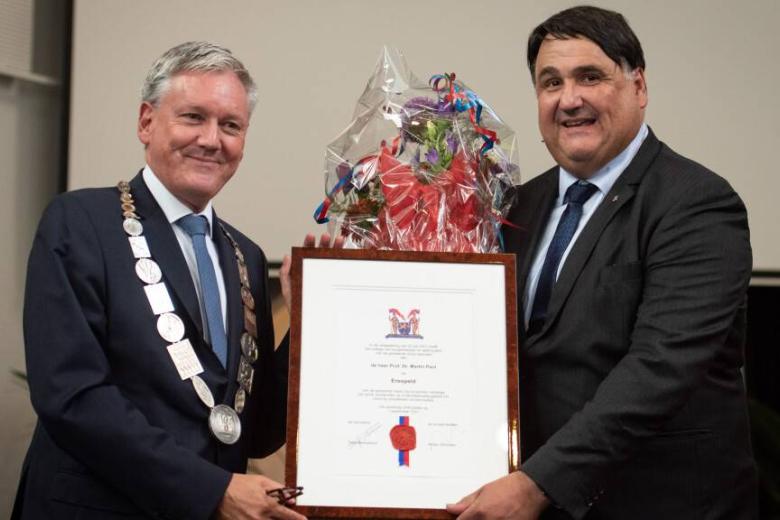The Complex Road to Sustainable Peace in Divided Societies
What factors can help prevent warring parties from reverting to violence and instead create a sustainable peace? This is the central question at the heart of the PhD thesis ‘Sustainable Peacebuilding in Divided Societies’ defended by Ayokunu Adedokun on 20 December 2016. The principal findings of this study are that local participation in and local ownership of the peace process (a bottom up approach) and credible and impartial external support from a powerful organisation like the United Nations is crucial. Very special is that former politician in the Netherlands and international civil servant in various capacities in the United Nations Prof. Jan Pronk will be one of the members of the corona.
Evidence from Mozambique
Today most armed conflicts occur within states and not between them. These conflicts are more difficult to solve than international conflicts and often reoccur. Careful examination by Adedokun of the enduring peace that followed the civil war in Mozambique from 1977 to 1992 reveals three crucial factors: local participation in and ownership of the peace process; credible and impartial international support through the United Nations and an inclusive political settlement. For example in Mozambique local actors like the Christian Council of Mozambique, traditional leaders and local NGO’s happened to be important forefront soldiers in a bottom up approach of the peacebuilding process. In addition, a peacebuilding mission will be more successful when it is led and/or authorised by the UN employing instruments like disarmament, demobilization, and reintegration of ex-combatants (DDR), humanitarian and relief efforts, political assistance and budget support, rather than a unilateral mission led by the United States or Russia, Adedokun states.
Multidimensional Approach
Adedokun’s study introduces the framework of ‘Hybrid Political Orders’ (HPOs) as a useful analytical approach to better understand post-conflict societies. This framework enables us to understand and appreciate the various connections, associations and benefits that exist between internal and external actors and drives home the point that there is no one-size-fits-all solution to sustainable peace.
Also read
-

-
International gravitational wave laboratory opens in Maastricht
Demissionary Minister of Education, Culture and Science Ingrid van Engelshoven will open ETpathfinder in Maastricht this afternoon. The state-of-the-art physics laboratory will serve as a testing ground for the development of technologies for future gravitational wave detectors.

-
Martin Paul receives city of Venlo's badge of honour
UM President Martin Paul received the badge of honour ('erespeld) of the city of Venlo on 7 September from Mayor Scholten.
